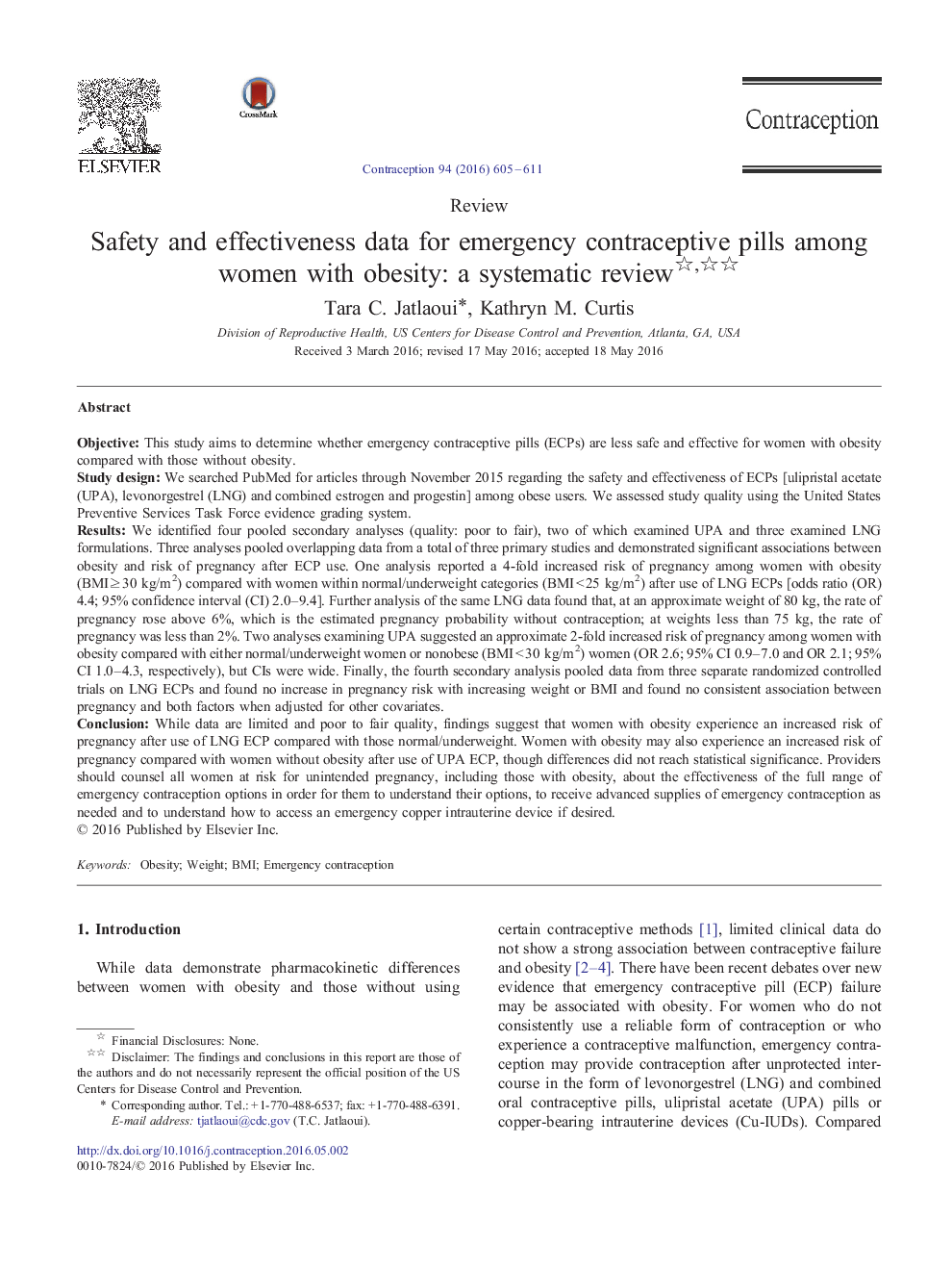| کد مقاله | کد نشریه | سال انتشار | مقاله انگلیسی | نسخه تمام متن |
|---|---|---|---|---|
| 5691043 | 1410102 | 2016 | 7 صفحه PDF | دانلود رایگان |
ObjectiveThis study aims to determine whether emergency contraceptive pills (ECPs) are less safe and effective for women with obesity compared with those without obesity.Study designWe searched PubMed for articles through November 2015 regarding the safety and effectiveness of ECPs [ulipristal acetate (UPA), levonorgestrel (LNG) and combined estrogen and progestin] among obese users. We assessed study quality using the United States Preventive Services Task Force evidence grading system.ResultsWe identified four pooled secondary analyses (quality: poor to fair), two of which examined UPA and three examined LNG formulations. Three analyses pooled overlapping data from a total of three primary studies and demonstrated significant associations between obesity and risk of pregnancy after ECP use. One analysis reported a 4-fold increased risk of pregnancy among women with obesity (BMI â¥Â 30 kg/m2) compared with women within normal/underweight categories (BMI < 25 kg/m2) after use of LNG ECPs [odds ratio (OR) 4.4; 95% confidence interval (CI) 2.0-9.4]. Further analysis of the same LNG data found that, at an approximate weight of 80 kg, the rate of pregnancy rose above 6%, which is the estimated pregnancy probability without contraception; at weights less than 75 kg, the rate of pregnancy was less than 2%. Two analyses examining UPA suggested an approximate 2-fold increased risk of pregnancy among women with obesity compared with either normal/underweight women or nonobese (BMI < 30 kg/m2) women (OR 2.6; 95% CI 0.9-7.0 and OR 2.1; 95% CI 1.0-4.3, respectively), but CIs were wide. Finally, the fourth secondary analysis pooled data from three separate randomized controlled trials on LNG ECPs and found no increase in pregnancy risk with increasing weight or BMI and found no consistent association between pregnancy and both factors when adjusted for other covariates.ConclusionWhile data are limited and poor to fair quality, findings suggest that women with obesity experience an increased risk of pregnancy after use of LNG ECP compared with those normal/underweight. Women with obesity may also experience an increased risk of pregnancy compared with women without obesity after use of UPA ECP, though differences did not reach statistical significance. Providers should counsel all women at risk for unintended pregnancy, including those with obesity, about the effectiveness of the full range of emergency contraception options in order for them to understand their options, to receive advanced supplies of emergency contraception as needed and to understand how to access an emergency copper intrauterine device if desired.
Journal: Contraception - Volume 94, Issue 6, December 2016, Pages 605-611
